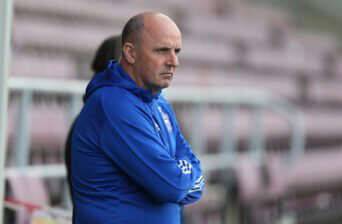Ten years that changed the face of women’s football
It was a landmark moment for women’s football. Under the arch of Wembley stadium, to the soundtrack of Beyoncé’s feminist anthem Run the World (Girls), more than 70,000 fans streamed in to watch Team GB take on Brazil in the London Olympics to result in what was then Britain’s biggest ever women’s football match.
Team GB won 1-0 but that was almost (sort of) beside the point. The atmosphere was electric. In the crowd, where I was covering the match for the Evening Standard, the moment was a revelation. I couldn’t believe there were so many women and girls. Not because they didn’t belong – of course they did – but after a lifetime of hearing that women were rubbish at football and being made to feel that our views on the subject were unwelcome it felt completely wild.
But most striking of all was the mood. As well as “rocking” and “a night never to forget for women’s football in this country”, as player turned commentator Alex Scott, who was on the pitch that night, described it at the time, it was also convivial and friendly (and a sharp contrast to my only previous live football experience selling pies as a student at Carrow Road, Norwich City’s ground).
Despite breaking records – and proving that women’s football could fill the home of football – many England players then still had day jobs. The Women’s Super League (WSL) had yet to become fully professional.
How the landscape has shifted in a decade. Now, as England prepares to host the women’s Euros, which start on 6 July, with 450,000 tickets sold across the 25 days, it is already the biggest ever women’s sporting event in Europe. Games will take place in 10 venues including Wembley, Old Trafford, Brighton and Hove community stadium and St Mary’s in Southampton.
Des





